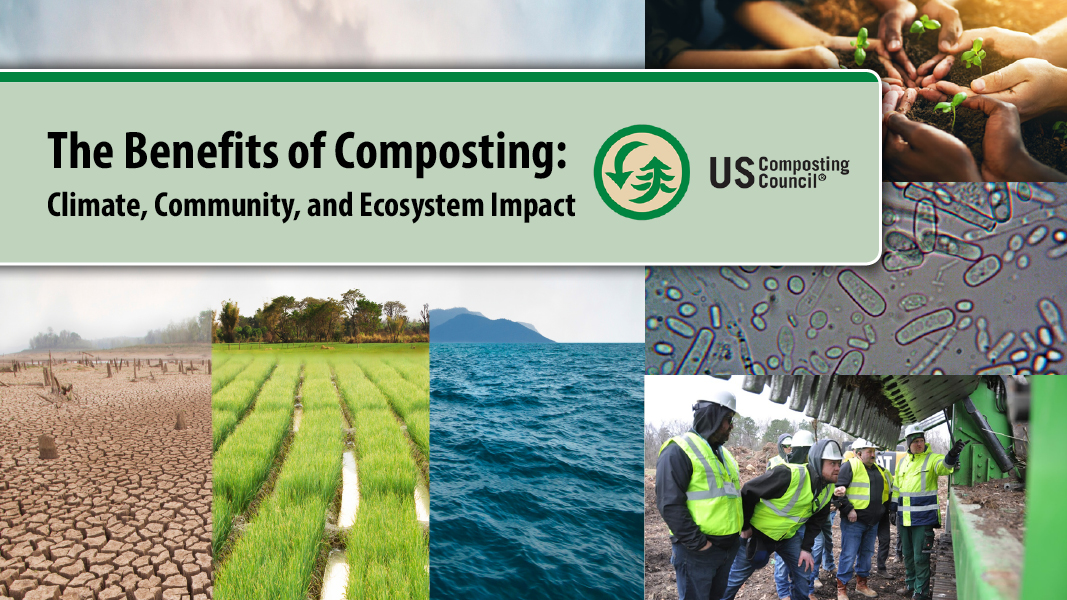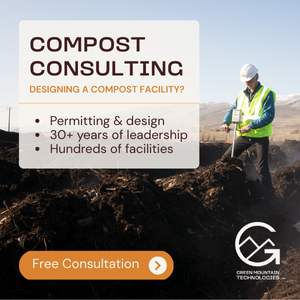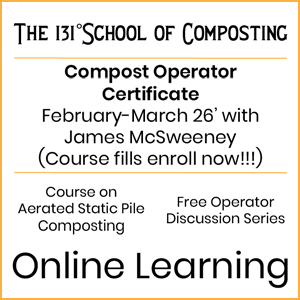Top: Images courtesy US Composting Council
The US Composting Council updated its 3-page Benefits of Composting document recently, which “highlights compost’s core benefits in improving soil health and explores how composting addresses broader environmental and social challenges, such as climate change, biodiversity, and community resilience.” Additional information was added about compost benefits related to methane avoidance and carbon sequestration, notes USCC. The fact sheet is a high level summary of the benefits related to fighting climate change via landfill diversion and replacing synthetic fertilizers; improving biodiversity and habitat restoration; serving as a hands-on platform for environmental science education; and community composting-based systems that “address local waste management challenges while promoting environmental and economic equity.” It discusses the tangible benefits of compost, e.g., supplies significant quantities of organic matter and beneficial microorganisms to the soil and growing media, conserves water due to its ability to retain and efficiently transfer water, and reduces soil erosion. Concludes Benefits of Composting: “Composting is a scalable, science-backed solution to global challenges, including greenhouse gas emissions, soil degradation, and habitat loss. By diverting organic waste, replacing synthetic fertilizers, restoring ecosystems, and fostering education and community action, composting contributes to resilient food systems and carbon-neutral economies. Increasing participation in composting programs is critical to advancing sustainable development and addressing the climate crisis.”














